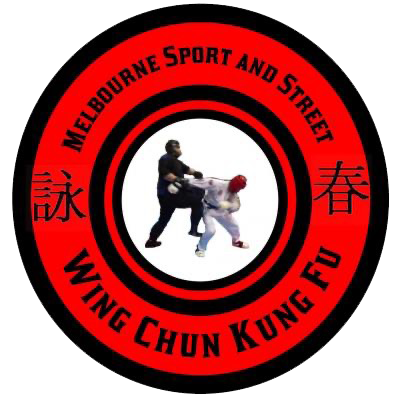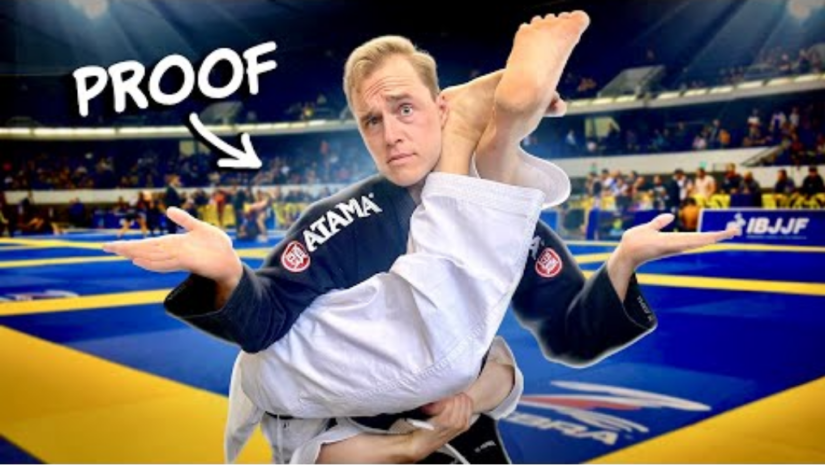Jesse Enkamp’s BJJ doesn’t work breakdown of why he did it
By Maurice Novoa a master under the Yuen Kay Shan, Ip Man and Pan Nam lineages.
Introduction
In the ever-evolving world of martial arts and YouTube, controversies can ignite like wildfire. I found myself embroiled in a debate surrounding the effectiveness of Brazilian Jiu-Jitsu (BJJ).
This controversy emerged in response to McDojoLife’s YouTube channel, known for scrutinizing martial arts practices and exposing frauds. McDojoLife, in a rather cheeky manner, referred to me as the “budget Steven Seagal” for my contentious stance that BJJ doesn’t work.
Simultaneously, Jesse Enkamp, celebrated for promoting various martial arts styles, created a video challenging the effectiveness of BJJ. Let’s delve into this intriguing saga and explore my story and the controversy that surrounds it.
The Origin of the Nickname
My journey into this controversy began when I posted a video expressing my skepticism about the practicality of BJJ in real-life situations. McDojoLife, known for its insightful critiques and humorous takedowns of martial arts charlatans, saw an opportunity to respond. In a playful yet pointed manner, they dubbed me as the “budget Steven Seagal,” setting the stage for a spirited exchange of opinions within the martial arts community.
My Bold Claim
At the heart of this controversy lies my assertion that BJJ doesn’t work effectively. Brazilian Jiu-Jitsu has garnered worldwide popularity for its ground grappling and submission techniques, with practitioners often hailing it as a formidable martial art for both sport and self-defense. My claim directly challenged this conventional wisdom and sparked a fervent debate.
The McDojoLife Response
McDojoLife’s video response to my claims aimed to defend the efficacy of BJJ. Through humor and wit, the video countered my arguments and, in doing so, drew significant attention to both my stance and the “budget Steven Seagal” moniker. This video gained over 100,000 views, amplifying my message and nickname across the martial arts landscape.
The Martial Arts Community’s Reaction
The martial arts community is a vibrant and passionate collective, with practitioners often holding strong and divergent opinions about their chosen disciplines. My critique of BJJ and McDojoLife’s response ignited fierce debates within this community. Voices from various martial arts backgrounds chimed in, sharing their perspectives on the effectiveness of BJJ and the credibility of my claims.
My Satirical Intent and TikTok Milestone
It is worth noting that my initial video about BJJ may not have been intended as a serious critique. In reality, it was a satirical attempt to gain followers on TikTok and promote my website. This attempt achieved its goal, as I garnered over 30,000 likes on TikTok, indicating that my message resonated with a substantial portion of my audience.
Once I reached the milestone of 1,000 followers on TikTok, I made the decision to delete the videos that were triggering and upsetting BJJ fanatics. Despite the controversy and passionate debates it stirred, I wanted to shift the focus towards constructive discussions rather than ongoing confrontations. As of now, my TikTok account still sits at a little over 1,060 followers, a testament to the enduring interest in the topics I address.
Jesse Enkamp’s Controversial Take on BJJ: Unraveling the McDojoLife Connection
The Steven Segal Connection

Jesse Enkamp has built a reputation for his YouTube channel, which predominantly showcases different martial arts styles’ effectiveness in a positive light, often delving into their histories and practical applications. However, what caught the martial arts community off guard was Enkamp’s unusual foray into trying to prove that BJJ doesn’t work.
It’s important to note that Jesse Enkamp had previously collaborated with Steven Segal in promotional videos that garnered significant attention. These videos aimed to dispel negative rumors and misconceptions about Segal’s martial arts skills. Given this history, it’s plausible to speculate that Steven Segal may have influenced or suggested Enkamp to create a video challenging BJJ’s effectiveness.
Retaliation or Motivation?
Enkamp’s sudden pivot towards disproving BJJ’s effectiveness raises questions about his motivations. Was it retaliation against McDojoLife’s reference to me as a “budget Steven Seagal” or an attempt to counter the negative perceptions surrounding Steven Segal, which he had previously helped mitigate?
McDojoLife’s video, which featured a critique of Sifu Maurice’s claims that BJJ doesn’t work, gained substantial traction, racking up over 100,000 views. This attention likely caught the eye of many martial arts YouTubers, including Jesse Enkamp, and could have contributed to his decision to create a video titled, “I Entered A BJJ Tournament To Prove It Doesn’t Work.”
The Controversial Video
Enkamp’s video explores the question of whether BJJ is effective in a self-defense or street fight scenario. He competes in a Jiu-Jitsu tournament with the intent of demonstrating that going to the ground is the last place one should want to be in real life. The provocative title and premise of the video immediately ignited a firestorm of debate within the martial arts community.
The Fallout
The fallout from Jesse Enkamp’s video has been substantial. For those considering taking up BJJ, the video may deter them from pursuing this martial art, as Enkamp attempts to make a compelling case against it. However, for trained martial artists, it’s evident that BJJ can be effective, especially when properly trained against tackles and takedowns.
Outspoken personalities like Andrew Tate, a former professional kickboxer, who criticized BJJ enthusiasts as “a bunch of dorks.” While this part of Tate’s rant was edited out by most YouTubers, one uploaded his comments, further contributing to the anti-BJJ sentiment that Enkamp’s video seems to address.
Conclusion
In reflecting upon the controversies and debates surrounding the effectiveness of Brazilian Jiu-Jitsu (BJJ), it becomes evident that the fervent and at times toxic attitudes of some BJJ enthusiasts have played a significant role in shaping the narrative. While martial arts, in their essence, should be about discipline, respect, and humility, it’s unfortunate that the passionate defense of BJJ by some fans has led to a divisive and confrontational atmosphere.
The BJJ community, like any other martial art, is diverse and composed of practitioners who hold strong beliefs in their chosen discipline. However, the zeal and unwavering conviction that BJJ is the best and invincible martial art have at times overshadowed the core values of martial arts.
The recent video that challenges the effectiveness of BJJ, spearheaded by Jesse Enkamp and myself, may indeed be a reflection of this growing frustration with the lack of humility and open-mindedness within the BJJ community. A martial artist who truly excels at fighting does not engage in insults and online challenges directed at random individuals. This behavior goes against the traditional martial arts philosophies that emphasize not only physical skill but also mental and moral development.
One of the core issues lies in the perception that BJJ does not always incorporate the traditional martial arts philosophies about life, such as respect for others, humility, and self-discipline. This disconnect between the physical aspects of BJJ and the philosophical values of martial arts may be a contributing factor to the controversy surrounding it.
The video challenging BJJ’s effectiveness may be just the beginning of a broader conversation within the martial arts community. It is essential for practitioners to engage in constructive discussions, welcome criticism, and foster an environment where different martial arts can coexist and learn from one another.
In conclusion, the recent video and the debates it has ignited serve as a reminder that martial arts should not only be about physical prowess but also about personal growth, respect, and humility. It is my hope that these discussions lead to a more open and understanding martial arts community, where the best aspects of each discipline can be celebrated, and practitioners can learn and evolve together. After all, the true essence of martial arts lies not only in the techniques but also in the values that shape us as individuals and martial artists.

